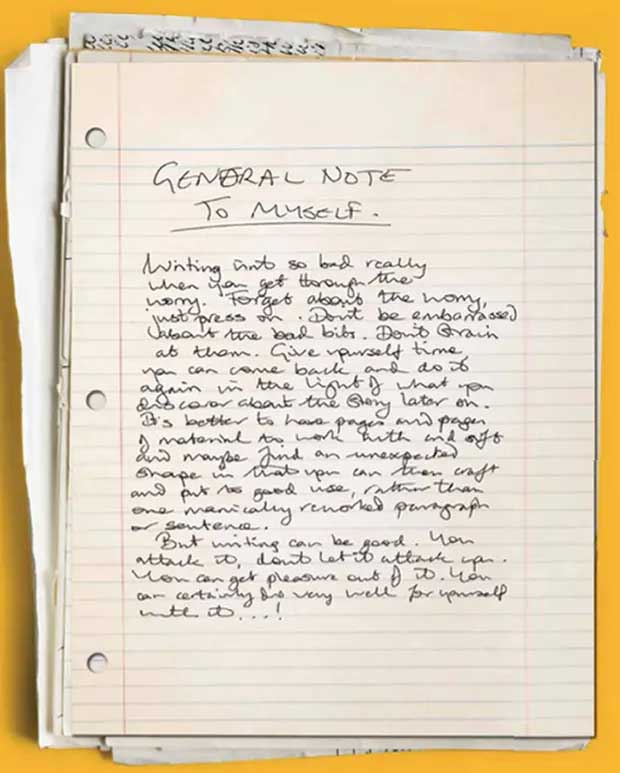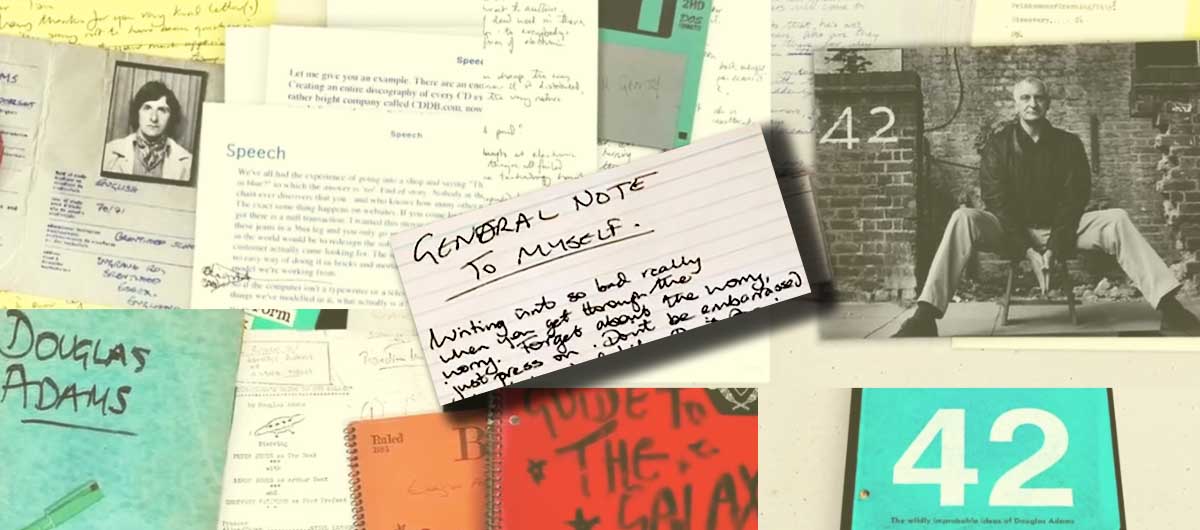There’s a story, I don’t know if it’s apocryphal, about a young story writer working for the BBC who presents his manager with an idea for a radio version of The Hitchhiker’s Guide to the Galaxy, the cult book by Douglas Adams.
“I think this would make a really good radio show,” says the young person full of enthusiasm.
“Are you trying to be funny?” The manager asks.
The Hitchhiker’s Guide to the Galaxy
The Hitchhiker’s Guide to the Galaxy started life as a radio show, only later becoming a five (or even six) volume “trilogy” of books, a TV series, a feature film, a stage play, a video game, and various other incarnations.
The first time I became conscious of Douglas Adams as a writer was when I sat on the floor with a group of friends in the rundown student lodgings of one of them, before an impressive bank of hi-fi equipment, as we listened to the second broadcast of the first series of The Hitchhiker’s Guide. I was 18. It was 1976. I was blown away.
Some of us in that student room, the older ones – older by one or two years – had already heard the whole of the first series. It was first broadcast, I think, six months before. They were the ones who took it upon themselves to initiate the rest of us into the Douglas Adams Fan Club.
Prodigious writing problems
I just worked out that Adams was not quite 25 when he wrote the first six episodes of The Hitchhiker’s Guide. I hadn’t realised how young he was. Not that I would have thought him young at the time. To me, aged just 18, a 25 year old would have seemed venerable.
Well, perhaps not venerable, but certainly someone of an age and maturity to respect. I didn’t know many people over about 21. Not counting people of my parents’ generation, or my teachers and tutors, who were much older.
Adams was not only a prodigy, and astoundingly inventive, he also had quite appalling struggles with his writing. After he died from a surprise heart attack in 2001 – he was only 49 – his archive of papers, books and “stuff” ended up at Cambridge University, held by his former college, St John’s. There are, apparently, 67 boxes of it. It was in the archive that the General Note to Myself was found.
I came across it now because it was used to illustrate a recent article in The Guardian. A new book, made up of material from Adams’ archive, is forthcoming in England from Unbound, sometime in 2022. Unbound is a publishing house that produces crowdfunded books. The Douglas Adams project, a book to be called 42 (of course), was looking for a thousand supporters and £65,000 to ensure it would be published. I don’t know how long the campaign – on Kickstarter – has been going on, but at the time of writing there are 21 days left to go. About 3653 people are signed up to support the book. Between them they’ve pledged a bit over £201,000. So it will definitely be published.
General Note To Myself
Adams’ General Note to Myself is something I am printing out and sticking up over my own desk now. I can’t claim to be either as inventive or as good a writer as him, but I certainly recognise the effort he seemed to require to write. The Note is good advice to me too, and I take it to heart.
Writing isn’t so bad really when you get through the worry. Forget about the worry, just press on. Don’t be embarrassed about the bad bits. Don’t strain at them. Give yourself time, you can come back and do it again in the light of what you discover about the story later on. It’s better to have pages and pages of material to work with and sift and maybe find an unexpected shape in that you can then craft and put to good use, rather than one manically reworked paragraph or sentence.
But writing can be good. You attack it, don’t let it attack you. You can get pleasure out of it. You can certainly do very well for yourself with it!

Does the Note speak to you too? What’s your relationship to Douglas Adams?


Halloj!
Här kommer en bekännelse: jag har inte läst något av Douglas Adams… Men allting som kan peppa dig att skriva är bra tycker jag så verkligen bra att du hittade denna lapp.
Tack för det här, Kristina. Adams skrivande är inte för alla, men hans kamp för att skriva är sådana som jag tror att många författare skulle känna igen.
🙂